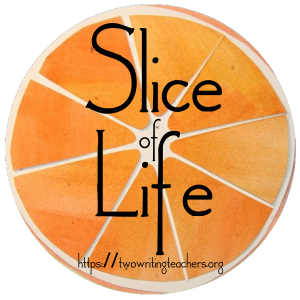“Everything I learned from reading I learned from kids.” Ken Goodman
I’ve been preparing to begin a cycle of Retrospective Miscue Analysis (RMA) with a handful of my high school students to use as a reading intervention. I was first introduced to RMA over a year ago by distinguished professor Dr. Cathy Compton-Lilly at a program called Literacy by the Lakes, organized by the faculty of UW - Madison in Literacy Education. Ever since then I have been intrigued, wondering what kind of positive changes RMA could mean for high school readers and how a teacher could effectively utilize RMA in a classroom setting. Since then, I have been studying and reading resources about RMA, including The Essential RMA: A Window into Readers’ Thinking and Reading Conversations: Retrospective Miscue Analysis with Struggling Readers, Grades 4-12.
RMA invites readers, in a strength-based manner, to think and talk about their reading through a series of conversations between an experienced reader and a novice reader. In addition, RMA encourages the novice reader to reflect on how he or she makes meaning from reading the text.
One of the first steps in RMA is to conduct the Burke Reading Interview with the student. This interview is often used to help a teacher better understand a student’s beliefs about reading. I used the modified version from Reading Conversations (Heinemann, 2005) with my students, which includes the addition of two questions:
- What makes someone a good reader?
- What does reading mean to you?
As I conducted interviews, I was particularly interested in how my students responded to the question, “what does reading mean to you?” Below are a few replies from my 9th and 10th grade students:
- “It doesn’t mean that much to me.”
- “I don’t read that often. If I have to I will, but I won’t do it over my free time.”
- “I don’t know. A book.”
- “It’s important because you need it for your everyday life, but it’s boring.”
- “Nothing.”
- “Not a lot. I don’t read a lot.”
- “I like it, but it doesn’t mean very much to me.”
Based on conferring with students and studying their data from past standardized tests, I knew that many of my students (but not all) have struggled in reading, so I wasn’t surprised how my freshman and sophomores responded to the Burke Reading Interview questions. After all, these students are considered “at risk” and many of them have already expressed how much they don’t like hate to read. Therefore, as their teacher, I feel that I must do all I can to help increase their agency in literacy in order to help them succeed in all of their classes (and most importantly, to achieve success beyond high school).
Administering these surveys with students compelled me to reflect on my own reading, especially how I would answer interview questions such as, what does reading mean to you? Here is how I might have answered this question:
Reading is something I cannot live without. I crave reading books like I need water and food and warmth to survive. I dog ear pages when I am moved by a passage, love to talk with friends about what books they are reading, and one of my favorite parts of being a teacher is connecting students with the right book. Buying too many books is one of my biggest weaknesses (and why my credit card bill is too high), as my husband can attest to. I could not imagine living in a house without an abundance of books.
When someone I respect recommends a book to me, I cannot resist from buying it (or checking out the title from our public library, if it is available). In fact, I have been known to write my thoughts (in essay form!) about the recommended book to whomever recommended it to me. (Seriously, could I get anymore bookish or nerdy?)
One of my favorite things about a good book is when story lives within me. That is, when I continue to think about characters or events or a particular scene long after I finish reading it. In the past year and a half, these books (see photo below) have been the stories that I have thought about the most, prompting me to reflect on my own life and how I view the world. Each title has changed me in some way, and I think of these books as dear friends, always ready and waiting for me to reach for them.
| A few of my cherished titles |
As a white, privileged working class white woman from the Midwest, reading has helped me consider different viewpoints, gain empathy, and knowledge. Reading has given me a sense of comfort when I have felt desperately alone. It has been an entry point for conversation with countless students and colleagues. Reading has been a way that I have connected with others, people of all different ages and backgrounds who I would have thought that I had nothing in common with. Overall, I am convinced that reading has made me a better human.



No comments:
Post a Comment